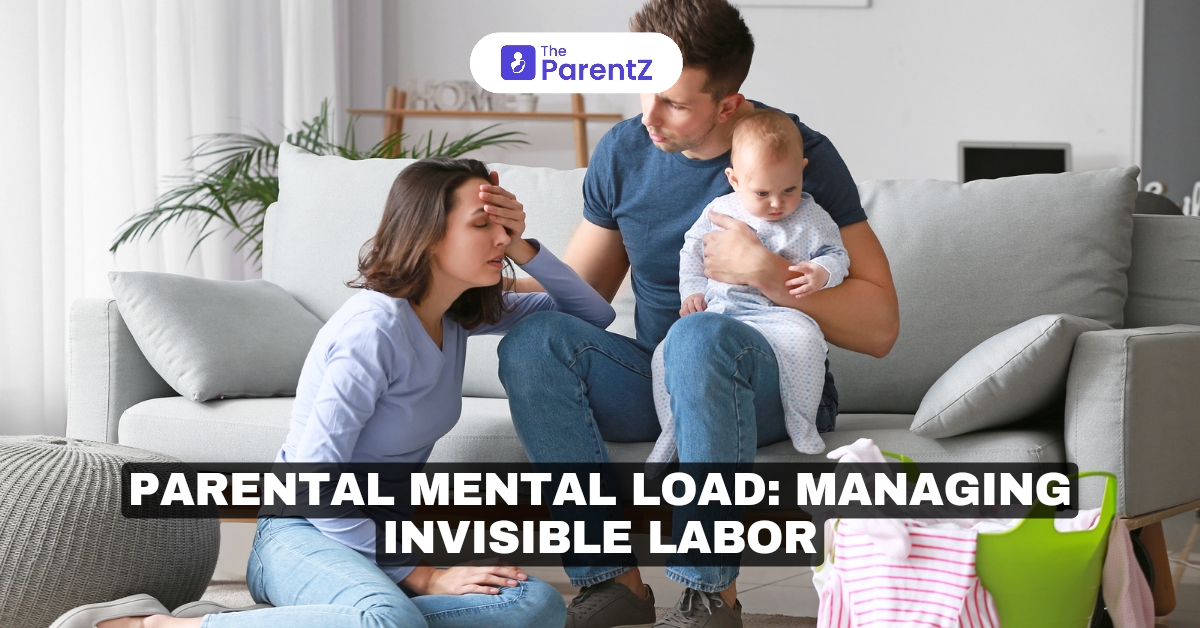The term "parental mental load" refers to the often invisible and unrecognized cognitive and emotional work involved in managing a household and raising children. This mental load includes everything from remembering appointments and managing schedules to worrying about the emotional well-being of the family. While both parents can experience the mental load, it is often disproportionately shouldered by mothers, leading to stress, burnout, and a sense of overwhelm. Understanding and managing this invisible labor is crucial for the well-being of parents and the overall harmony of the family.
What Constitutes Parental Mental Load?
Parental mental load is multifaceted and includes:
- Cognitive Labor: This involves the mental tasks associated with running a household, such as planning meals, keeping track of school events, and ensuring that household chores are completed. It also includes the mental effort required to anticipate and solve potential problems.
- Emotional Labor: Emotional labor involves managing the emotional needs of the family. This can include comforting children, maintaining a positive household atmosphere, and mediating conflicts. Mothers, in particular, often carry the emotional burden of ensuring that everyone in the family is emotionally supported.
- Organizational Labor: Organizing the family's daily routines, managing schedules, and coordinating activities are all part of the organizational aspect of the mental load. This labor often goes unnoticed but is essential for the smooth functioning of the household.
The Impact of Parental Mental Load
The mental load can have significant consequences on parents, particularly when it becomes overwhelming:
- Chronic Stress: Constantly juggling the mental load can lead to chronic stress, which can have adverse effects on both physical and mental health. Stress can manifest as anxiety, depression, and even physical ailments such as headaches and fatigue.
- Burnout: When the mental load becomes too heavy, it can lead to parental burnout. Burnout is characterized by emotional exhaustion, detachment from family members, and a reduced sense of personal accomplishment.
- Strained Relationships: The unequal distribution of the mental load can lead to tension and resentment between partners. This can strain relationships and create an imbalance in the partnership, where one person feels overburdened while the other may be unaware of the extent of the invisible labor being performed.
Strategies for Managing Parental Mental Load
- Recognize and Acknowledge the Mental Load: The first step in managing the mental load is to recognize and acknowledge it. Both partners should have open discussions about the invisible tasks that contribute to the mental load and the emotional labor involved in managing the household.
- Delegate and Share Responsibilities: To prevent burnout, it's essential to delegate tasks and share responsibilities more equitably. This may involve creating a list of household tasks and dividing them between partners in a way that feels fair and manageable for both.
- Use Technology to Your Advantage: There are numerous apps and tools available that can help manage the mental load. Family calendars, task management apps, and meal planning tools can streamline household management and reduce the cognitive burden.
- Prioritize Self-Care: Taking time for self-care is crucial for managing the mental load. Parents should ensure they have time to relax, pursue hobbies, and recharge. Regular self-care can help alleviate the stress associated with the mental load and prevent burnout.
- Communicate Openly: Open communication between partners is key to managing the mental load. Regularly check in with each other to discuss how you’re feeling, any stressors you’re experiencing, and how you can support each other better. This ongoing dialogue helps ensure that the mental load is balanced and that both partners feel supported.
- Set Boundaries: Establish clear boundaries between work, family time, and personal time. This can help reduce the mental load by preventing the blurring of lines between different areas of life. For example, setting specific times for family activities and ensuring that work tasks are not encroaching on family time can help maintain balance.
- Seek Professional Help if Needed: If the mental load becomes too overwhelming, it may be helpful to seek professional support, such as counseling or therapy. A mental health professional can provide strategies for managing stress and improving communication within the family.
Conclusion
The parental mental load is a significant but often invisible aspect of family life. By recognizing its impact and implementing strategies to manage it, parents can reduce stress, prevent burnout, and create a more balanced and harmonious household. Open communication, equitable distribution of tasks, and prioritizing self-care are essential components of managing the mental load effectively.





Be the first one to comment on this story.